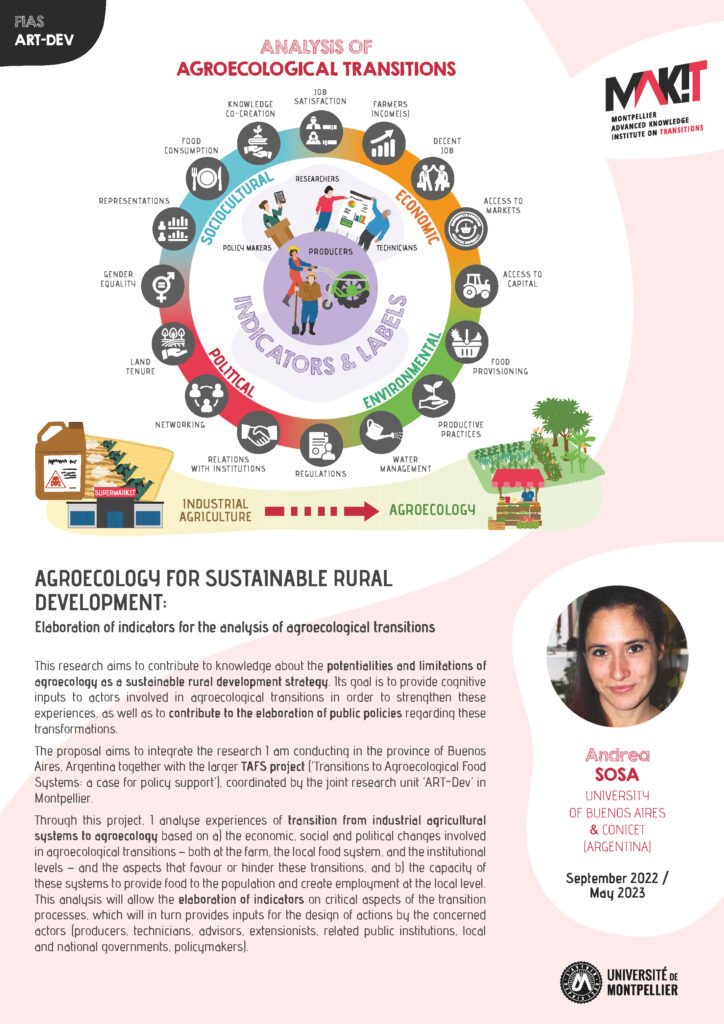Andrea Sosa
Andrea P. Sosa Varrotti has a PhD in Rural Studies from the University of Toulouse II – Jean Jaurès (UT2J, Toulouse, France), a PhD in Social Sciences from the University of Buenos Aires (UBA, Argentina), and a degree in Sociology (UBA).
Her doctoral thesis (2017) shows the role of trans-Latin agricultural megacompanies in the financialisation of agriculture. For the past four years, she has been analysing agroecological transitions in Argentina at the farm, local food systems and public policy levels.
Dr. Sosa has been a lecturer in Social Sciences Methodologies at UBA since 2009. She has obtained numerous scholarships and awards to study and conduct research in Argentina and abroad (Brazil, Canada, China, France, and Mexico). She also does consulting for ministries, international organisations and universities in Argentina and abroad and is an experienced French translator.
Dr. Sosa has published numerous journal articles and book chapters on agribusiness, network production, business strategies, land grabbing, financialisation, fair trade, agroecology and social research methodologies, among other topics.
This research aims to contribute to knowledge about the potentialities and limitations of agroecology as a sustainable rural development strategy. It also aims to provide cognitive inputs to actors involved in agroecological transitions in order to strengthen these experiences, as well as to contribute to the elaboration of public policies regarding these transformations.
The proposal aims to integrate the research I am conducting in the province of Buenos Aires, Argentina (‘Agroecological systems as a strategy for sustainable rural development. Elaboration of economic, social and political indicators for the analysis of agroecological transitions in Argentina’), and the larger project TAFS (‘Transitions to Agroecological Food Systems: a case for policy support’). TAFS project is organised by the Research Unit Art-Dev (Cirad Montpellier) through five platforms of more than thirty researchers in partnership for research, training and development in Africa, Southeast Asia, and Latin America, including Argentina. I am currently studying the case of the Trenque Lauquen District, in particular, its peri-urban area of its central city where, after the regulation of the application of agrochemicals, diverse and heterogeneous processes of agroecological transition have been unfolding for five years.
The main objective of the project is to analyse experiences of transition from industrial agricultural systems to agroecology based on a) the economic, social and political changes involved in agroecological transitions – both at the farm, the local food system, and the institutional levels – and the aspects that favour or hinder these transitions, and b) the capacity of these systems to provide food to the population and create employment at the local level. This analysis will allow the elaboration of indicators on critical aspects of the transition processes, which will be inputs for the design of actions by the actors involved – producers, technicians, advisors, extensionists, related public institutions, local and national governments, policymakers.
